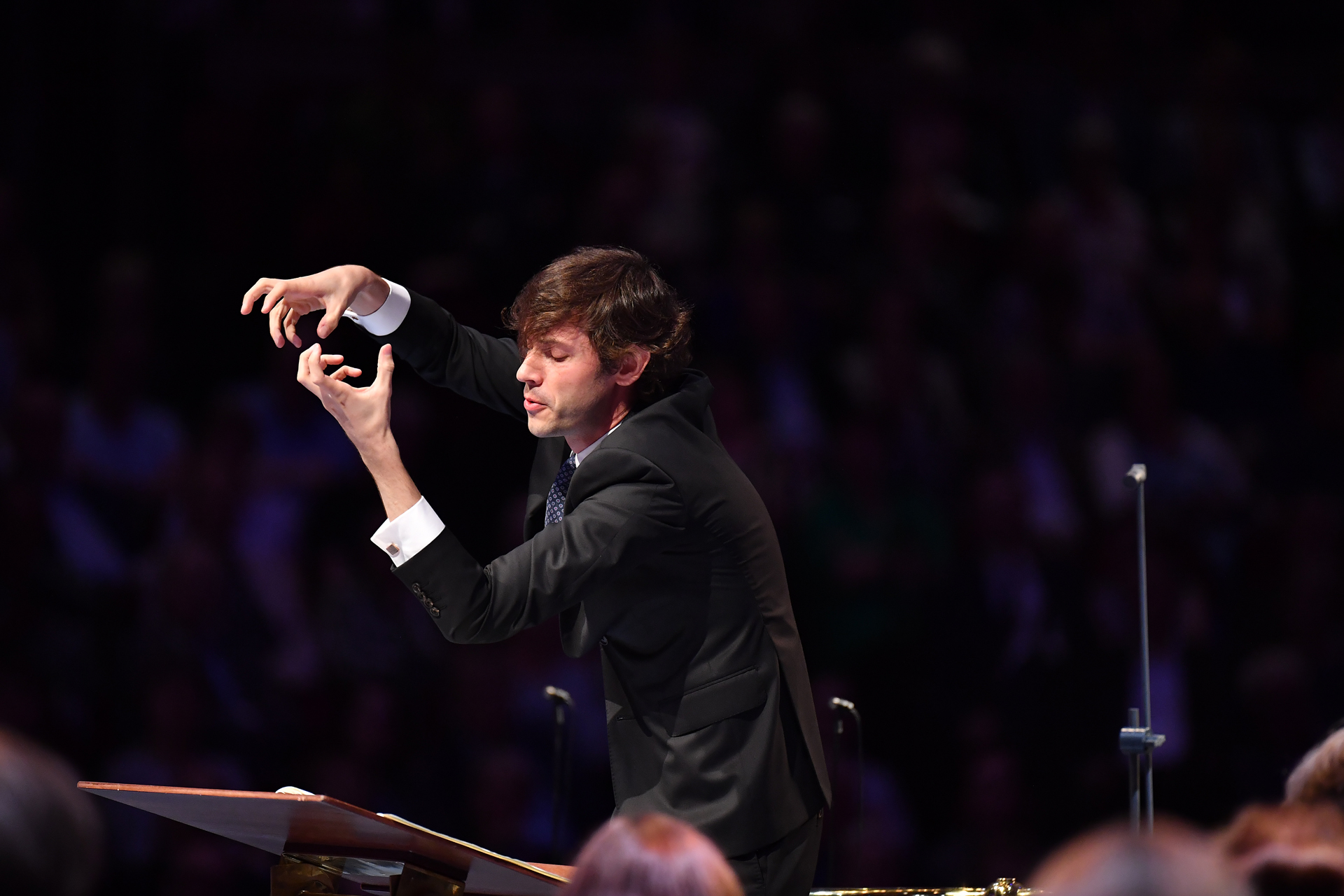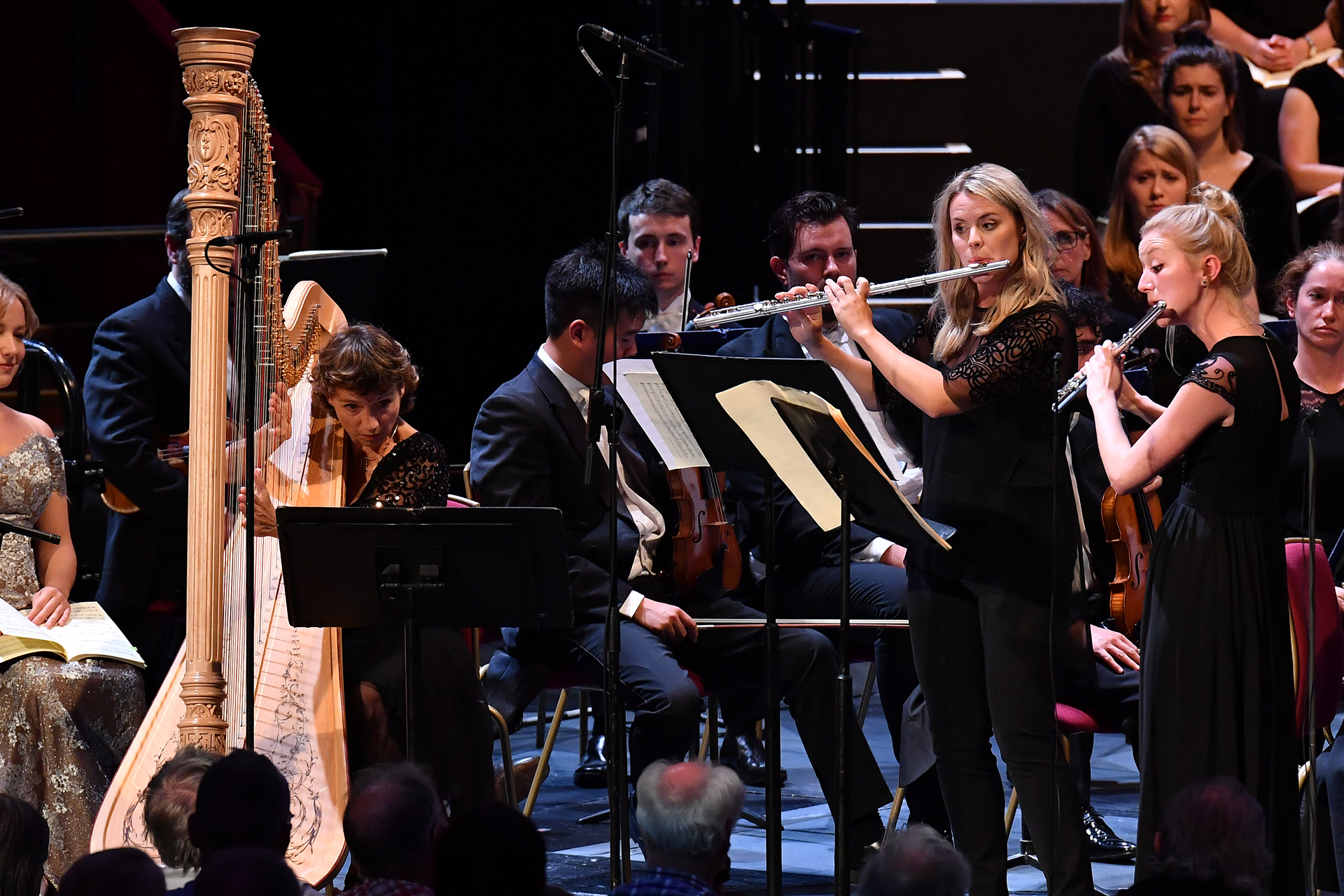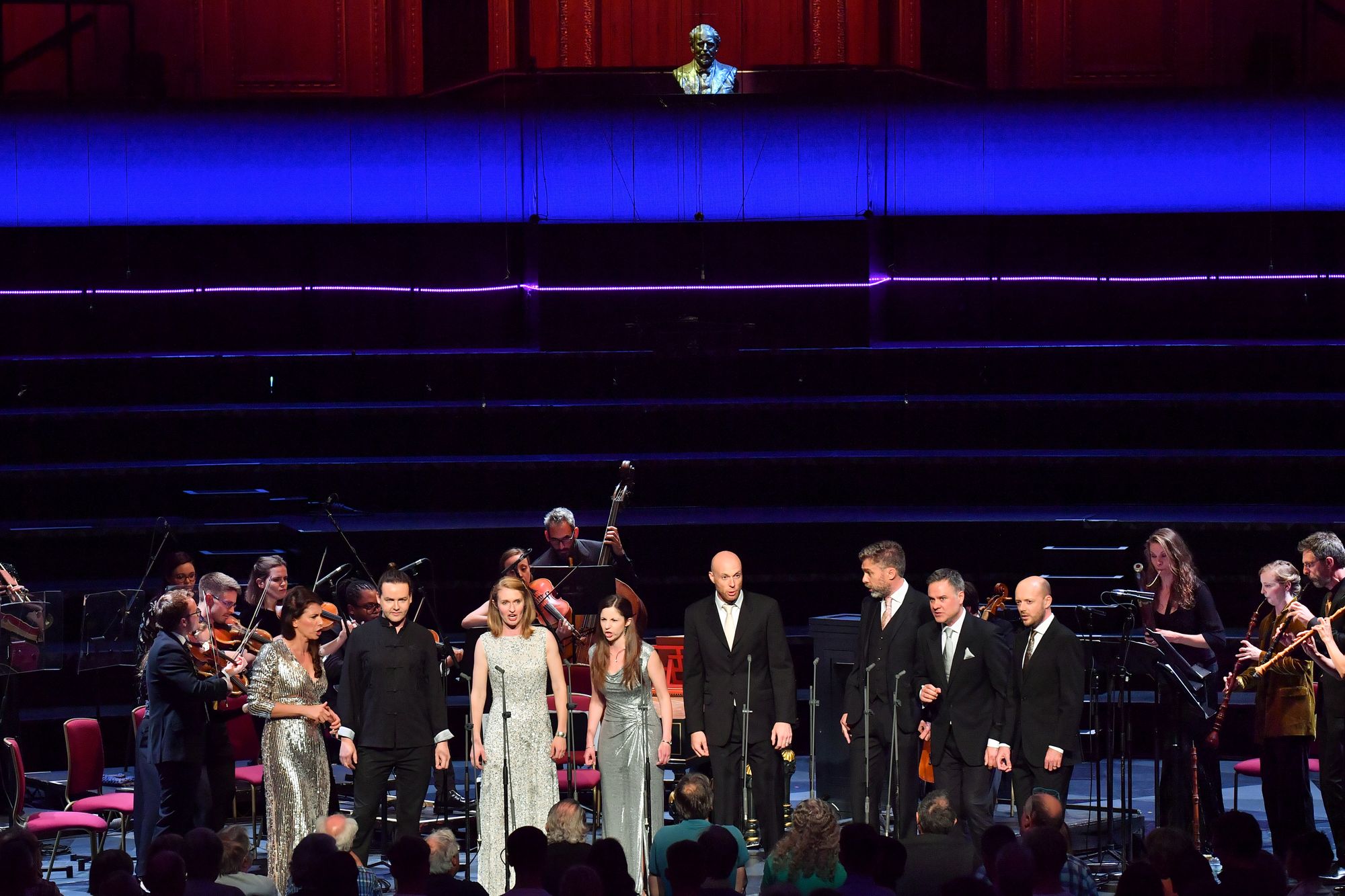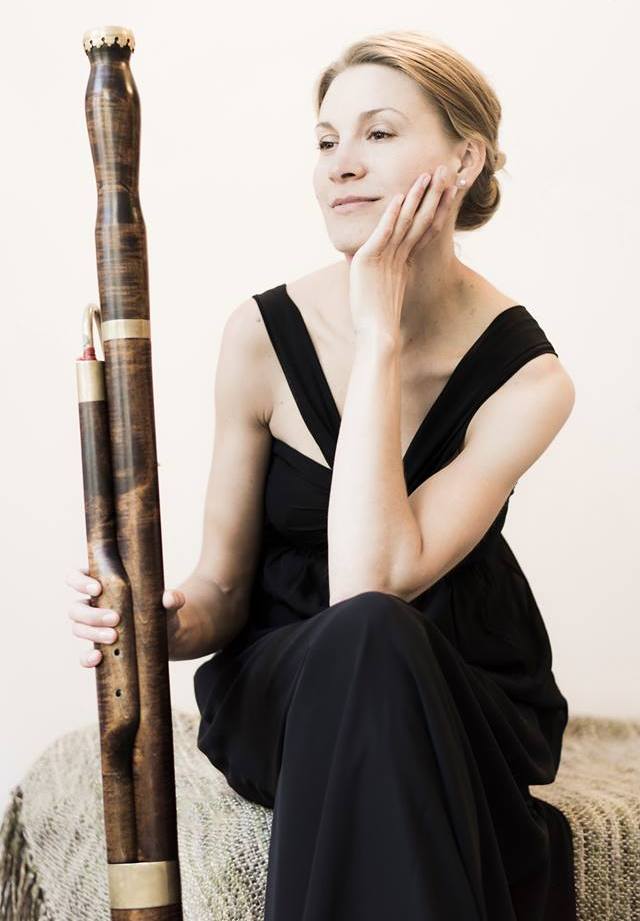Prom 37: The Childhood of Christ, Hallé, Pascal/ Prom 38: Bach Cantatas, Solomon's Knot reviews - holy radiance great and small | reviews, news & interviews
Prom 37: The Childhood of Christ, Hallé, Pascal/ Prom 38: Bach Cantatas, Solomon's Knot reviews - holy radiance great and small
Prom 37: The Childhood of Christ, Hallé, Pascal/ Prom 38: Bach Cantatas, Solomon's Knot reviews - holy radiance great and small
Berlioz's gentle miracle shimmers and Bach celebrations resound in an unlikely setting
Berlioz's most intimate oratorio certainly isn't just for Christmas – but, given its scale, is it right for the Proms?
What choirs and players we heard in The Childhood of Christ, too. This performance may have lost two of its original lynchpins, Sarah Connolly and Mark Elder – we wish them well – but Julie Boulianne is the most opulent of Berlioz mezzos, and we had a chance to gauge the extraordinary talent of conductor Maxime Pascal (pictured below) in a romantic score after his hard work on Stockhausen's Donnerstag aus Licht at the Southbank Centre earlier this year. He's singular to watch, with swooping seabird movements with both arms – no baton – and a certain invertebrate quality which certainly doesn't transfer to the music, beautifully shaped but with nodal points punched home. He knows all the words, too, and his professional choirs – Britten Sinfonia Voices and Genesis Sixteen – projected them in what sounded like perfect French. 
Boulianne was joined by the Faust to her Marguerite in Glyndebourne's astonishing Berlioz, Allan Clayton. He, too, made an uncanny impact in the hall, the voice pinging off the north walls at the furthest distance from the platform, infinitely tender in the final chorus (a shame one crucial component in Berlioz's scheme, a quiet audience, didn't play its part – there was a restlessness throughout that destroyed Pascal's attempt to hold the silence at the end). Neal Davies, an underrated singer, lived the conscience of the king and the genial compassion of the Sais host; Roderick Williams added his sympathetic presence to the too-shadowy support role of Joseph. 
This was no late-night meditation but a joyous cluster of Bach masterpieces celebrating the heavenly forces' triumph over the infernal serpent - Michaelmas, the feast being celebrated here, is six weeks away - and delivered in theatrical style by the Solomon's Knot Collective (to give them their full title; pictured below). In performances as bracing s these, you could only marvel as usual at the sheer range of human emotions Bach covers in four works essentially dealing with the same theme. That meant the peerless silvery sound of four authentic trumpets, magical in this venue, in each work, but there were the usual contrasts in arias and duets; Bach never repeats himself. Not all the choral singers should really be tackling these solos – my addiction to the Helmuth Rilling complete cantatas edition on CD stems from a certain disenchantment with some of the sub-par early-music voices on the Gardiner, Koopman and Suzuki cycles – but four of them cut the mustard, and even those who didn't got away with it by virtue of their collegial rapport with unusual instrumental combinations.
That meant the peerless silvery sound of four authentic trumpets, magical in this venue, in each work, but there were the usual contrasts in arias and duets; Bach never repeats himself. Not all the choral singers should really be tackling these solos – my addiction to the Helmuth Rilling complete cantatas edition on CD stems from a certain disenchantment with some of the sub-par early-music voices on the Gardiner, Koopman and Suzuki cycles – but four of them cut the mustard, and even those who didn't got away with it by virtue of their collegial rapport with unusual instrumental combinations.
 The vocal standouts were tenor Andrew Tortise alongside a heavenly woodwind consort in "Bleibt, ihr Engel" ("Stay, ye angels") in Cantata No. 19, opulent bass Alex Ashworth with serpentine continuo support in "Kraft und Starke" (" Might and power") and soprano Zoë Brookshaw in "Gottes Engel weichen nie" ("God's angels never retreat"), its halo of strings and the perfect, spacious tempo taken casting us back to Berlioz's grounded, tender world, both in Cantata No. 149.
The vocal standouts were tenor Andrew Tortise alongside a heavenly woodwind consort in "Bleibt, ihr Engel" ("Stay, ye angels") in Cantata No. 19, opulent bass Alex Ashworth with serpentine continuo support in "Kraft und Starke" (" Might and power") and soprano Zoë Brookshaw in "Gottes Engel weichen nie" ("God's angels never retreat"), its halo of strings and the perfect, spacious tempo taken casting us back to Berlioz's grounded, tender world, both in Cantata No. 149.
Biggest star of the evening - something of a paradox, I know, given that conductorless Solomon's Knot is a collective and all about ensemble – was bassoonist Inga Maria Klaucke (pictured above by Yatho Photography and Music), interposing herself statuesquely between alto Kate Symonds-Joy and tenor Thomas Herford in the semi-comic duet "Seid wachsam" ("Be wakeful"). This wasn't the only place where one wanted to laugh out loud; never forget Bach had a sense of humour. And how engaging these singers are, conveying the meaning without the music in front of them. The polyphonic blaze of the chorale "Nun is das Heil und die Kraft" ("Now is come salvation and strength") which is all that remains of Cantata No. 50 sent us dancing out towards midnight. Sheer joy.
- Listen on the BBC iPlayer to Prom 37 and Prom 38 for the next month
- Read more classical reviews on theartsdesk
rating
Share this article
Add comment
more Classical music
 Bell, Perahia, ASMF Chamber Ensemble, Wigmore Hall review - joy in teamwork
A great pianist re-emerges in Schumann, but Beamish and Mendelssohn take the palm
Bell, Perahia, ASMF Chamber Ensemble, Wigmore Hall review - joy in teamwork
A great pianist re-emerges in Schumann, but Beamish and Mendelssohn take the palm
 First Persons: composers Colin Alexander and Héloïse Werner on fantasy in guided improvisation
On five new works allowing an element of freedom in the performance
First Persons: composers Colin Alexander and Héloïse Werner on fantasy in guided improvisation
On five new works allowing an element of freedom in the performance
 First Person: Leeds Lieder Festival director and pianist Joseph Middleton on a beloved organisation back from the brink
Arts Council funding restored after the blow of 2023, new paths are being forged
First Person: Leeds Lieder Festival director and pianist Joseph Middleton on a beloved organisation back from the brink
Arts Council funding restored after the blow of 2023, new paths are being forged
 Classical CDs: Nymphs, magots and buckgoats
Epic symphonies, popular music from 17th century London and an engrossing tribute to a great Spanish pianist
Classical CDs: Nymphs, magots and buckgoats
Epic symphonies, popular music from 17th century London and an engrossing tribute to a great Spanish pianist
 Sheku Kanneh-Mason, Philharmonia Chorus, RPO, Petrenko, RFH review - poetic cello, blazing chorus
Atmospheric Elgar and Weinberg, but Rachmaninov's 'The Bells' takes the palm
Sheku Kanneh-Mason, Philharmonia Chorus, RPO, Petrenko, RFH review - poetic cello, blazing chorus
Atmospheric Elgar and Weinberg, but Rachmaninov's 'The Bells' takes the palm
 Daphnis et Chloé, Tenebrae, LSO, Pappano, Barbican review - lighting up Ravel’s ‘choreographic symphony’
All details outstanding in the lavish canvas of a giant masterpiece
Daphnis et Chloé, Tenebrae, LSO, Pappano, Barbican review - lighting up Ravel’s ‘choreographic symphony’
All details outstanding in the lavish canvas of a giant masterpiece
 Goldscheider, Spence, Britten Sinfonia, Milton Court review - heroic evening songs and a jolly horn ramble
Direct, cheerful new concerto by Huw Watkins, but the programme didn’t quite cohere
Goldscheider, Spence, Britten Sinfonia, Milton Court review - heroic evening songs and a jolly horn ramble
Direct, cheerful new concerto by Huw Watkins, but the programme didn’t quite cohere
 Marwood, Power, Watkins, Hallé, Adès, Bridgewater Hall, Manchester review - sonic adventure and luxuriance
Premiere of a mesmeric piece from composer Oliver Leith
Marwood, Power, Watkins, Hallé, Adès, Bridgewater Hall, Manchester review - sonic adventure and luxuriance
Premiere of a mesmeric piece from composer Oliver Leith
 Elmore String Quartet, Kings Place review - impressive playing from an emerging group
A new work holds its own alongside acknowledged masterpieces
Elmore String Quartet, Kings Place review - impressive playing from an emerging group
A new work holds its own alongside acknowledged masterpieces
 Gilliver, LSO, Roth, Barbican review - the future is bright
Vivid engagement in fresh works by young British composers, and an orchestra on form
Gilliver, LSO, Roth, Barbican review - the future is bright
Vivid engagement in fresh works by young British composers, and an orchestra on form
 Josefowicz, LPO, Järvi, RFH review - friendly monsters
Mighty but accessible Bruckner from a peerless interpreter
Josefowicz, LPO, Järvi, RFH review - friendly monsters
Mighty but accessible Bruckner from a peerless interpreter
 Cargill, Kantos Chamber Choir, Manchester Camerata, Menezes, Stoller Hall, Manchester review - imagination and star quality
Choral-orchestral collaboration is set for great things
Cargill, Kantos Chamber Choir, Manchester Camerata, Menezes, Stoller Hall, Manchester review - imagination and star quality
Choral-orchestral collaboration is set for great things

Comments
I wholeheartedly agree with